More than ever, car buyers and leasers are wondering which is smarter or cheaper. An electric car, or just one that runs on petrol? When we are on the road with the electric Peugeot e-208 and the 208 1.2 PureTech, the battery variant turns out to be the boss of its 100 hp petrol brother in various respects.
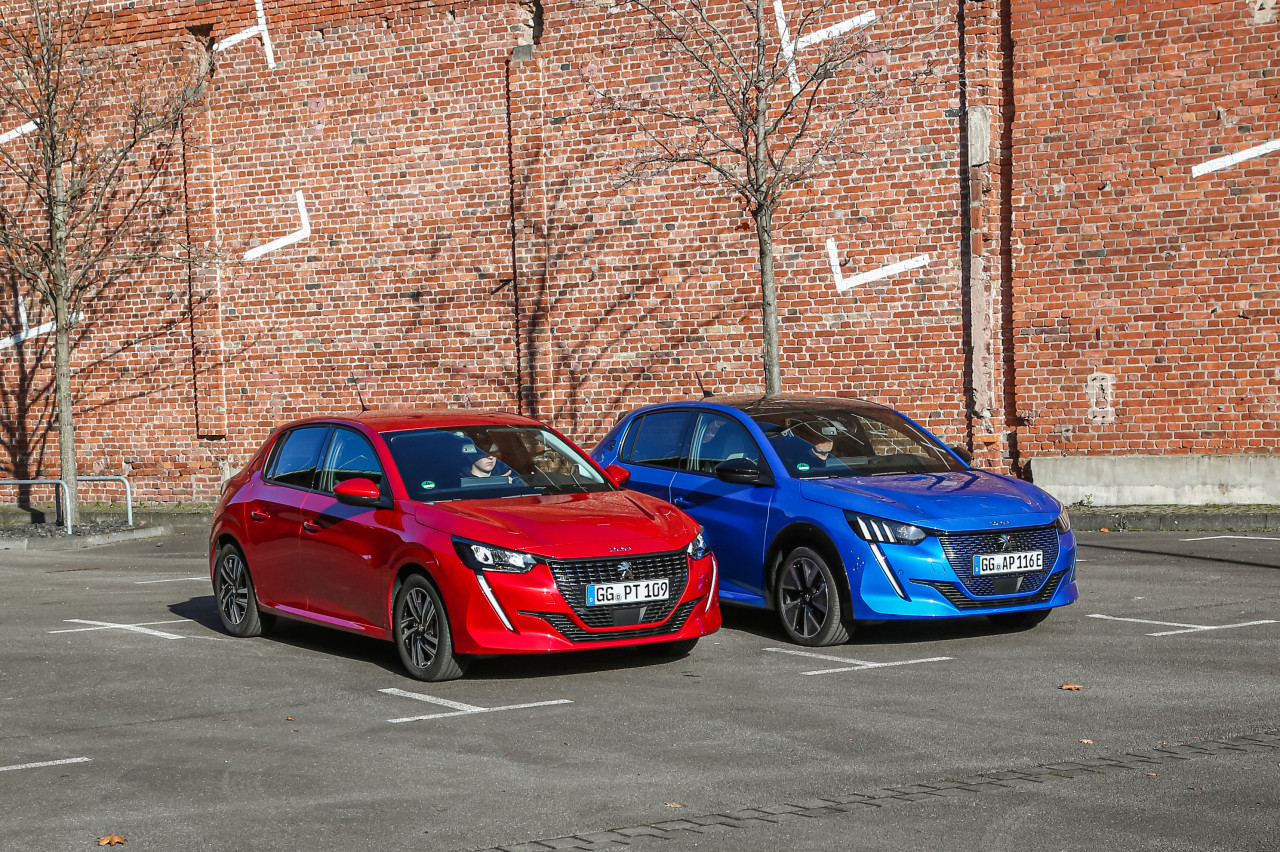
The Peugeot 208 is doing well in the Netherlands. He occupied a solid seventh position in the sell options in 2021. This made the 208 the boss of both the Peugeot 2008 and the Peugeot 108. In the last months of 2021, the success of the Peugeot 208 was almost half due to the electric version. Whether that is correct, we will find out in this comparison. First we will drive the cars for a while, then we will do the math.
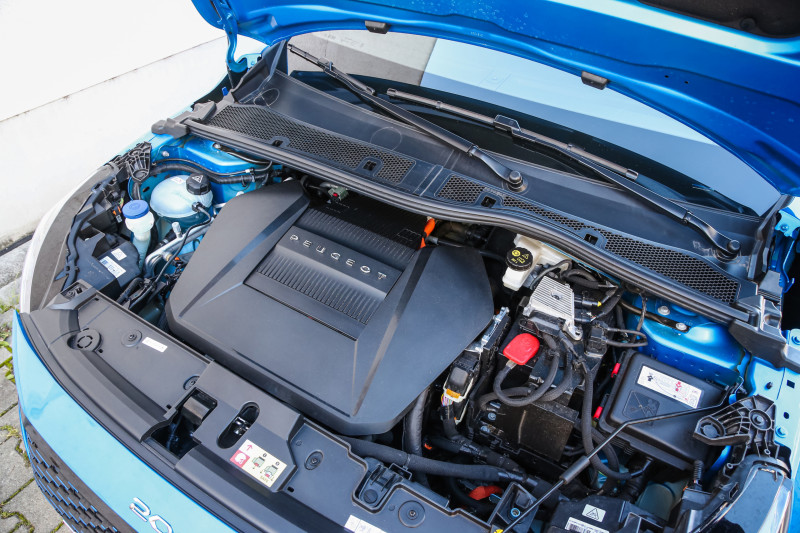
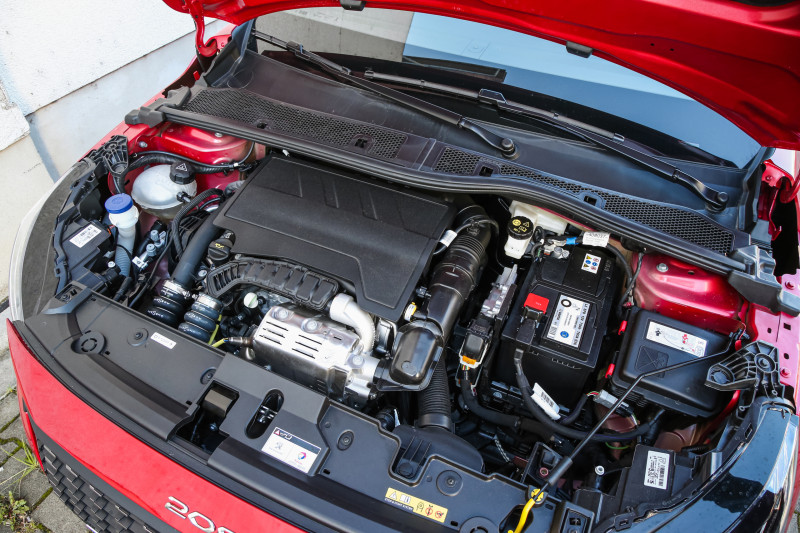
208 Puretech 100 as the golden mean
From the traditional powertrains of 75, 100 and 130 hp, we opt for the 1.2 PureTech with 100 hp and 205 Nm. We see this as the golden mean. The electric Peugeot 208 is almost 400 kilos heavier, but can rely on 136 hp and 260 Nm. This makes it potentially faster. Although the sensible EV driver will not waste his energy with pointless traffic light sprints …
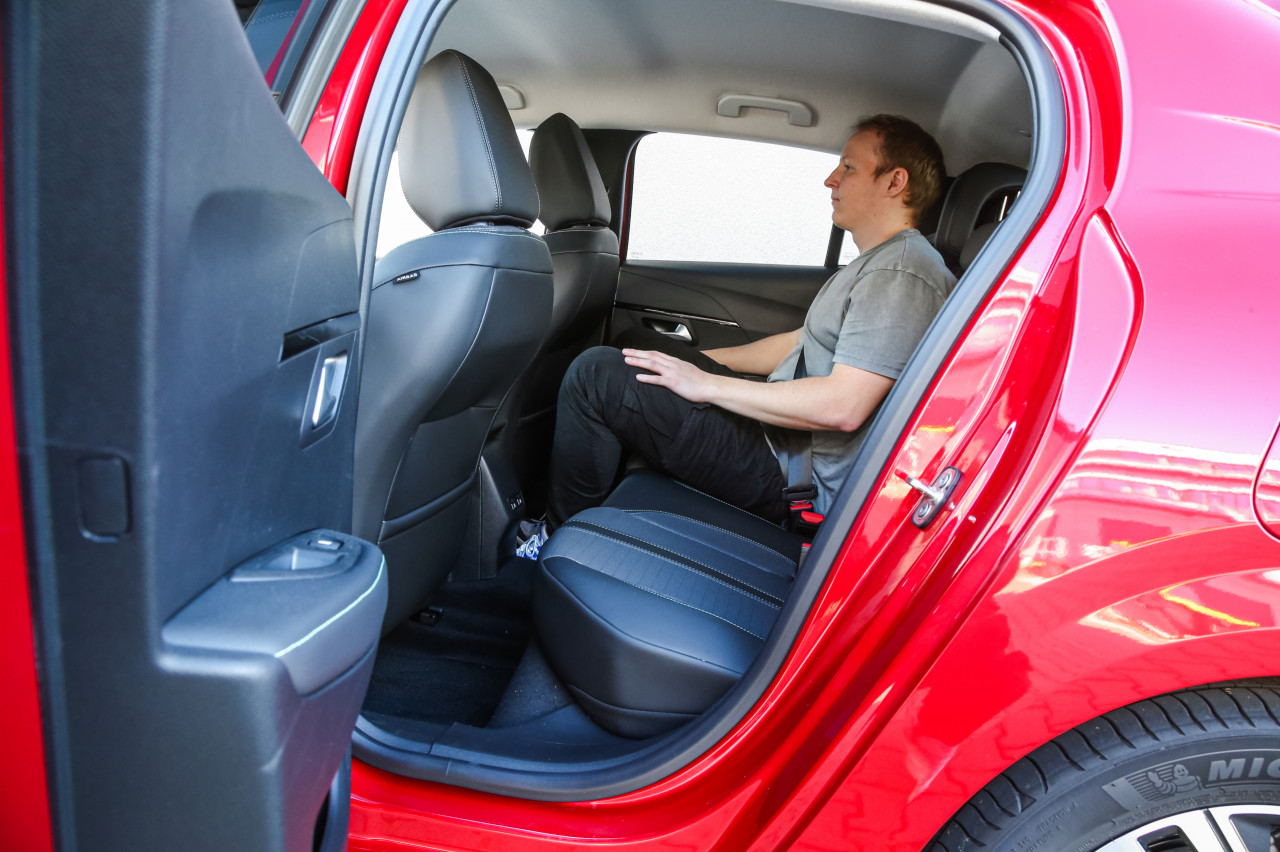
Peugeot 208 not the most spacious
The typical Peugeot interior with the i-Cockpit with its tiny steering wheel and the high placed instrumentation looks beautiful. In terms of space, the Peugeot 208 is not a star. The capacity of the trunk (265 liters) is not great either. Especially not if you also have to put a charging cable in it.
Petrol-208 brakes much better
The Peugeot 208 has a tightly tuned chassis, but due to its 400 kilos of grease rolls, the plug version handles short bumps more smoothly. It also feels a bit firmer on the asphalt. During the braking test, the electric Peugeot 208 is not convincing. With cold brakes, the e-208 already needs more than 3 meters more to come to a standstill from 100 km/h, with warm brakes this has increased to 5.20 meters.
Tangible differences
The difference in powertrain is clearly palpable. With its electric motor and constant transmission, the e-208 drives particularly smoothly and silently. The three-cylinder sounds a bit grumpy in the 208 PureTech 100. As if he would rather have been born as an electric motor.
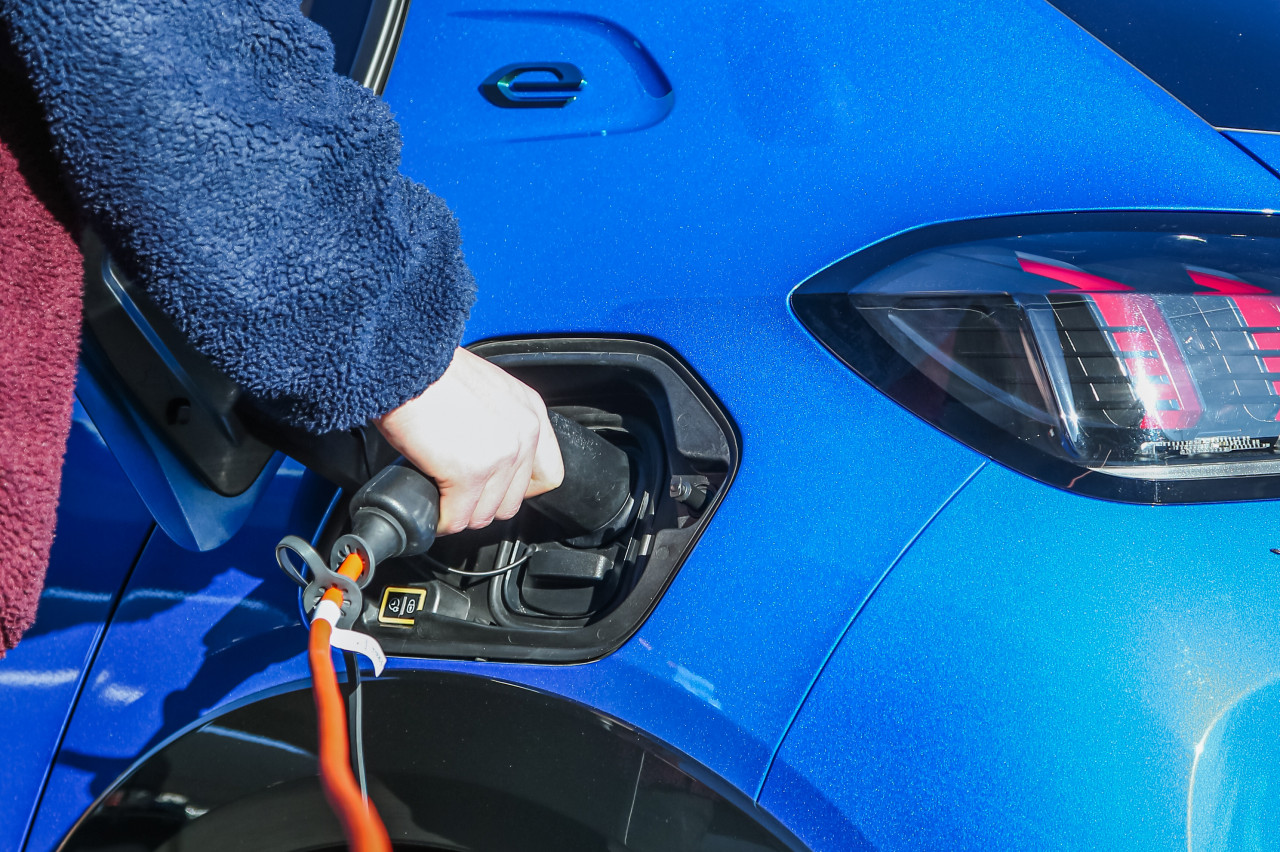
City is the domain of the e-208
During our test, the outside temperature was 6 to 8 degrees Celsius. Depending on the circumstances, the Peugeot e-208 traveled a minimum of 231 and a maximum of 315 kilometers. The built-up area is his favorite working area, where his agility and electric powertrain come into their own.
Highway knights go for petrol
If you spend a lot of time on the highway, the petrol 208 is the more convenient choice. With an average consumption of 6.1 l/100 km (1 in 16.4) we came to a range of 721 kilometers. Once empty, the tank is full again in five minutes. The e-208 has a charging capacity of up to 100 kW. Yet you still lose about 26 minutes on the fast charger to charge the battery from 20 to 80 percent.
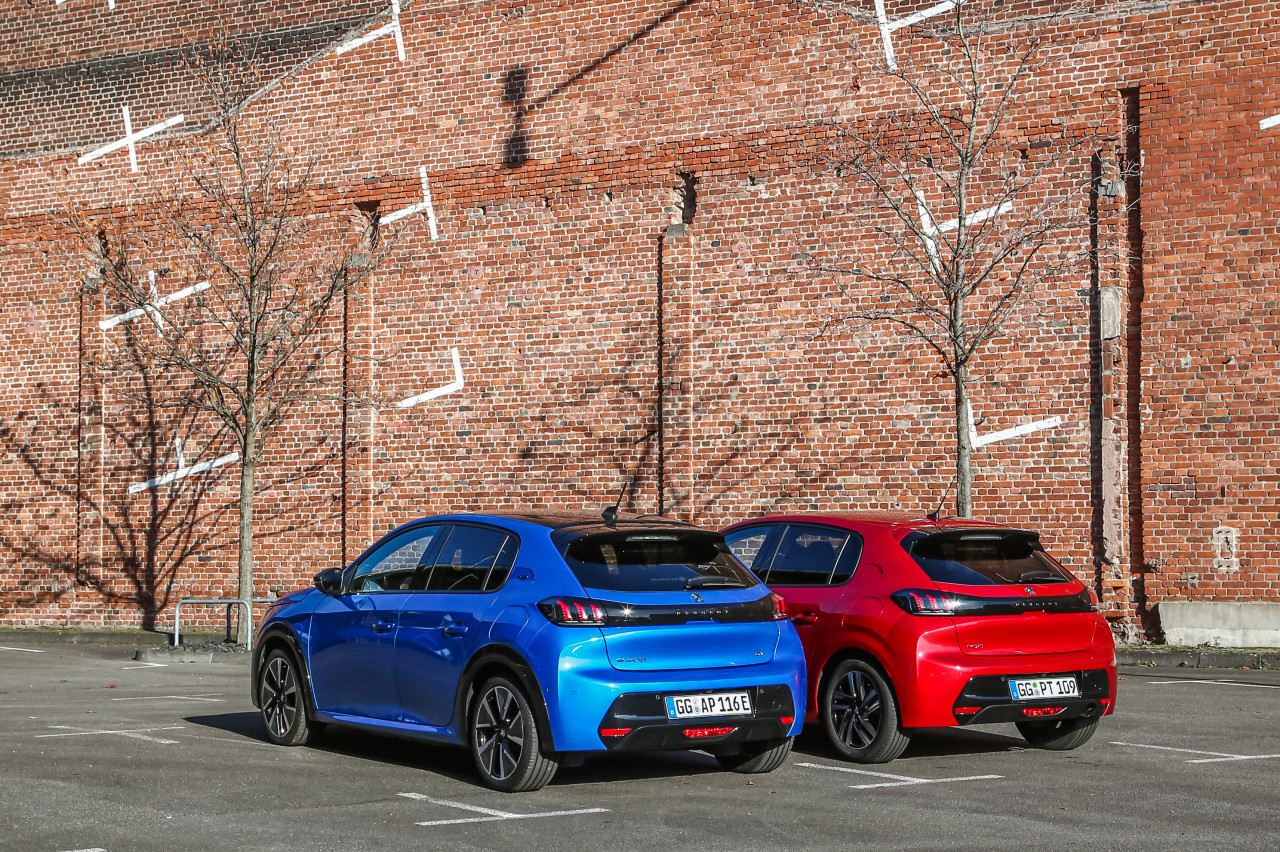
Price differences electric 208 and 208 Puretech
If we assume the Active Pack version, you pay 24,060 euros for a manual 1.2 PureTech 100. If you would like an automatic transmission, you have to leave 26,560 euros at the dealer. That is still less than the e-208 in Active Pack trim costs: 31,100 euros. If you deduct the government subsidy of 3350 euros here, there is an amount of 27,750 euros below the line. That makes for a more attractive picture. Especially if you look at the rates for private lease and the monthly costs in the longer term. Below we list the most important data and costs.
| Peugeot | 208 1.2 PureTech 100 | e-208 (7.4 kW charger) |
|---|---|---|
| Performance | Active Pack | Active Pack |
| Test Consumption | 6.1 l/100 km (1 : 16.4) |
19.9 kWh/100 km |
| base price | 24.060 | 31,100 |
| Government subsidy | † | 3350 |
| Total price | 24.060 | 27,750 |
| Residual value after 4 yrs. in euros / % |
13.137 / 54.6 | 19.04 / 61.1 |
| All-risk insurance per month. (1) |
37 | 41 |
| Fuel/Energy Cost per month. (2) |
204 | 109 |
| Road tax per month. | 44 | 0 |
| Maintenance costs per yr. | 580 | 425 |
| Total cost per month. | 560 | 437 |
| Total cost per km | 34.1 cents | 26.2 cents |
(1) The cheapest all-risk car insurance according to Independer.nl for a 40-year-old driver with 8 claim-free years, based on 20,000 km/year. (2) Based on 20,000 km/year with the measured test consumption. Petrol (E10): average price 2.014 per litre. Electricity: average rate 0.33 euros per kWh.
The full article previously appeared in Car Review 2/2022. You will also find comparisons between the Opel Mokka and Opel Mokka-e, the Mercedes S-class and EQS, and finally the BMW X3 and iX3.